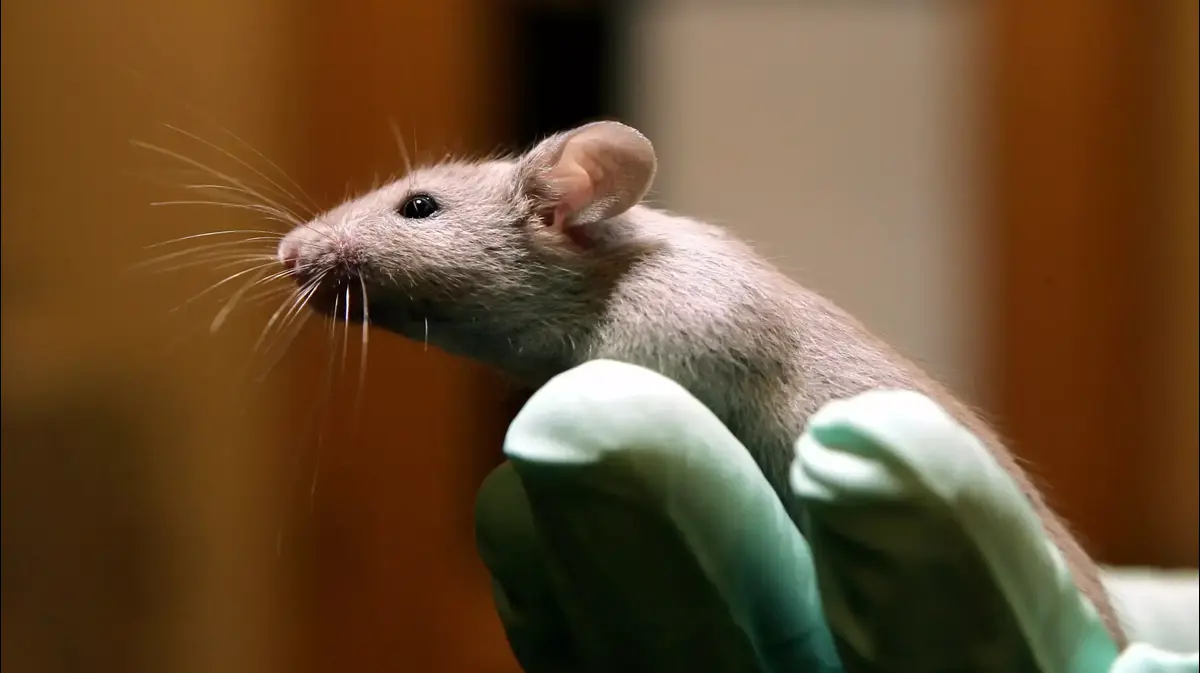Cruelty free?
Laboratory mouse (Photo: AP)
Good news for lab animals: under a new law signed by President Joe Biden at the end of 2022, drugs in development are no longer required to undergo animal testing before receiving approval from the US Food and Drug Administration (FDA).
"The FDA Modernization Act 2.0 will accelerate innovation and bring safer and more effective drugs to market faster by reducing red tape that is not supported by current science," said Sen. Dr. Rand Paul of Kentucky, who sponsored the law. "[It's] a step toward Ending the unnecessary suffering and death of animals," he added in his statement.
However, this does not mean that testing new drugs on animals has been banned outright. Rather, it means that drug companies can choose to deviate from animal testing and test drugs using other methods if they wish.
Mouse, monkey and dog - OUT?
The new law amends the US federal Food, Drug, and Cosmetic Act, which was passed in 1938 to oversee the safety of food, drugs, medical devices, and cosmetics. Before its amendment, the FDA required testing of a drug on one rodent species, such as a mouse or rat, and one non-rodent species, such as a monkey or dog, to obtain approval.
You don't need the animals to check if the medicine works.
A woman swallows a pill (Photo: ShutterStock)
But these animal models are said to be cruel, expensive and often ineffective, some argue that animal models are wrong more often than they are right.
"A mouse or a rat doesn't always process drugs and chemicals the same way humans do," Namandje Bompus, chief scientist at the FDA, told Nature Index in November.
"The development of more systems based on human cells, human tissues and human models can, in some cases, be a better predictor of the quality of treatment," he added.
Such alternatives include "organ-on-a-chip," which are microchips containing miniature tissues capable of mimicking the function of an organ, as well as computer models, and organoids—3D clusters of cells that can replicate much of an organ's complexity.
But these methods are largely in early stages of development, meaning it may be a long time before we see them replace animal testing.
It is still too early to say whether the future of drug development will be completely free of animal testing, or even if it will involve fewer animals than today.
But it is an important and significant step for animals and humans.
health
news
Tags
Animals
Medicines
Experiments on animals








